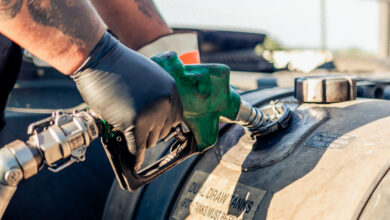
10 Tips for saving on car starter cost
The vehicle’s starter is an important component in the car. Unfortunately, when it fails, it can be quite expensive to replace. Automotive experts put together a list of the 10 tips for saving on car starter costs that we will discuss in this article. car lights
Table of Contents
What is the starter and what does it do?
The starter is an electric motor that helps to start the engine by providing the initial torque to turn it over. It is usually located near the front of the engine and is connected to the battery via a cable. The starter also has a solenoid attached to it which engages and disengages the starter with the flywheel.
How much does it cost to replace a starter?
The cost of replacing a starter can vary depending on the make and model of your vehicle. However, it typically costs between $400 and $700 to have a new starter installed by a professional.
When should I replace my starter?
If your starter is having trouble starting the engine or if it is making strange noises, then it may be time to replace it. Additionally, if your car has been having trouble starting up lately, it may be a sign that the starter is going bad and needs to be replaced.
10 tips for saving on car starter cost
1. Check your warranty:
The first and most obvious tip is to check and see if your starter is still covered under your warranty. If it is, then you may be able to get it replaced for free or at a reduced cost.
2. Try a rebuild:
If your starter is no longer under warranty, you may be able to have it rebuilt instead of replaced. This can be a much cheaper option and can extend the life of your starter.
3. Shop around:
When you do need to replace your starter, make sure to shop around and compare prices between different auto shops. You may be able to find a better deal by doing this.
4. Use aftermarket parts:
If you’re comfortable with doing some of the work yourself, you can save money by using aftermarket parts. Just be sure to do your research and make sure you’re getting quality parts.
5. Ask for a used starter:
If you know someone who is mechanically inclined, they may be able to replace your starter with a used one. This can save you a lot of money and is worth asking about.
6. Check your local salvage yard:
Another option for finding cheaper parts is to check your local salvage yard. You may be able to find a good deal on a used starter here.
7. Try negotiating:
When you take your car in for repair, don’t be afraid to try negotiating the price down. Many shops are willing to work with you on the cost, so it never hurts to ask.
8. Do it yourself:
If you’re really feeling adventurous, you can always try replacing the starter yourself. This is a big job, but it can save you a lot of money if you’re able to do it successfully.
9. Take preventative measures:
One way to avoid having to replace your starter altogether is to take preventative measures. This includes things like regularly cleaning and maintaining your starter and making sure the battery is in good condition.
10. Consider a different car:
Finally, if your car is starting to have a lot of expensive repairs, you may want to consider trading it in for a newer model. This may not be the cheapest option in the short-term, but it can save you money in the long run.
Tips for extending the lifetime of the starter motor
1. Check the battery:
As we mentioned before, one of the main causes of starter failure is a bad battery. So, one of the best ways to extend the life of your starter is to regularly check and maintain your battery.
2. Keep it clean:
Another way to extend the life of your starter is to keep it clean. This means regularly cleaning the area around the starter and making sure there is no build-up of dirt or grime.
3. Inspect it regularly:
It’s also a good idea to inspect your starter regularly for any signs of wear or tear. This way, you can catch any problems early on and avoid more serious damage down the road.
4. Be careful when starting:
One common cause of starter damage is trying to start the engine too quickly. So, be careful when starting your car and make sure to give the starter plenty of time to do its job.
5. Don’t overuse it:
Finally, try not to overuse your starter. This means avoiding things like short trips where you don’t need to use the engine much. By doing this, you can help extend the life of your starter and avoid costly repairs down the road.
Are all starter motors the same?
No, all starter motors are not the same. There are different types of starter motors available on the market, and each one is designed for a specific type of vehicle. So, be sure to do your research and choose the right starter motor for your car.
What are some common problems with starter motors?
One of the most common problems with starter motors is a bad battery. If your battery is old or not working properly, it can cause your starter motor to fail. Other common problems include a damaged solenoid, dirty connections, or a loose flywheel.
How do I know if my starter motor is going bad?
There are several signs that your starter motor may be going bad. These include things like a clicking noise when you turn the key, trouble starting the engine, or dim headlights. If you notice any of these symptoms, it’s important to take your car to a mechanic and have it checked out.
Conclusion
In conclusion, replacing a car starter can be expensive, but there are ways to save money. Be sure to check your warranty, try a rebuild, or shop around for the best price. You can also use aftermarket parts or ask for a used starter. If you’re feeling really adventurous, you can even try doing it yourself. Finally, consider taking preventative measures to avoid having to replace your starter altogether. Thanks for reading!








